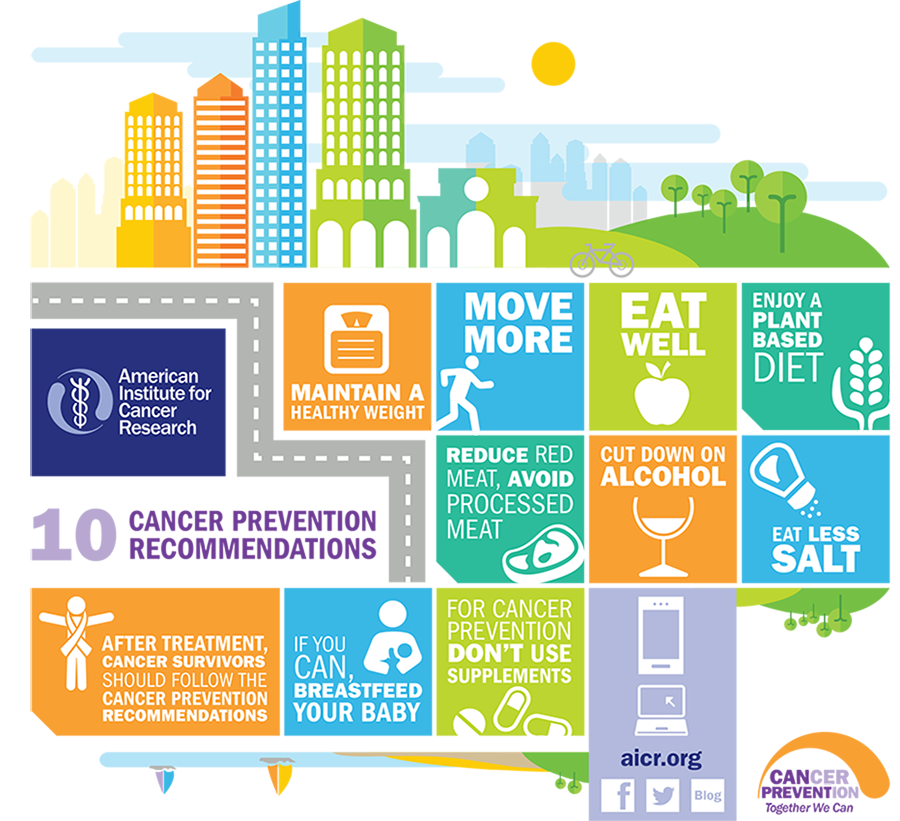For colorectal cancer, research shows that eating healthy, being active, and staying a healthy weight make a big difference in reducing the risk of developing this cancer. AICR estimates that while there are no guarantees, one of every two colorectal cancer cases can be prevented by following our recommendations.
Now a new study suggests that following AICR recommendations for prevention years before diagnosis can prolong survival for those who do develop colorectal cancer. And every recommendation followed decreased the risk of dying a little more.
The study was published in BMC Medicine.
 The study included 3,292 Europeans diagnosed with colorectal cancer. All the participants were part of the large European Prospective Investigation into Cancer and Nutrition, and for years, they had been sharing their diet, activity and other lifestyle habits.
The study included 3,292 Europeans diagnosed with colorectal cancer. All the participants were part of the large European Prospective Investigation into Cancer and Nutrition, and for years, they had been sharing their diet, activity and other lifestyle habits.
About six years on average prior to their diagnosis, study researchers looked at how much everyone adhered to AICR recommendations. Participants were given one point for each recommendation they met; a half point for following it partially. (Researchers didn’t measure two of recommendations, such as supplements, because there wasn’t enough data.)
Four years after diagnosis, survivors who had most adhered to AICR recommendations years before diagnosis were 30 percent less likely to die from colorectal cancer, and 21 percent less likely to die at all compared to those who least followed the recommendations. The more people followed the recommendations, the less likely they were to die. This is after taking into account the person’s age, tumor stage, sex and other available factors that play a role in mortality.
Every one point increment linked to a 10 percent lower risk of dying from colorectal cancer, and a 7 percent lower risk from dying from any cause.
When each recommendation was looked at independently, the recommendation for staying a healthy weight and eating high amounts of plant foods were associated with lower mortality risk. These are key risk factors for prevention, also.
There is evidence that people diagnosed with cancer adopt a healthier lifestyle and so it’s possible that the people in this study changed their diet and activity habits. More research is needed to show whether following AICR recommendations after colorectal cancer diagnosis has a similar effect upon survival, the authors note.
This study adds to a growing body of research suggesting that AICR Recommendations can improve mortality overall and help cancer survivors’ health. Now, AICR recommends that cancer survivors follow the same recommendations for prevention. Visit our Learn More on Colorectal Cancer section for the latest research on how diet, activity and weight link to this cancer.
The study was funded by the World Cancer Research Fund International.





